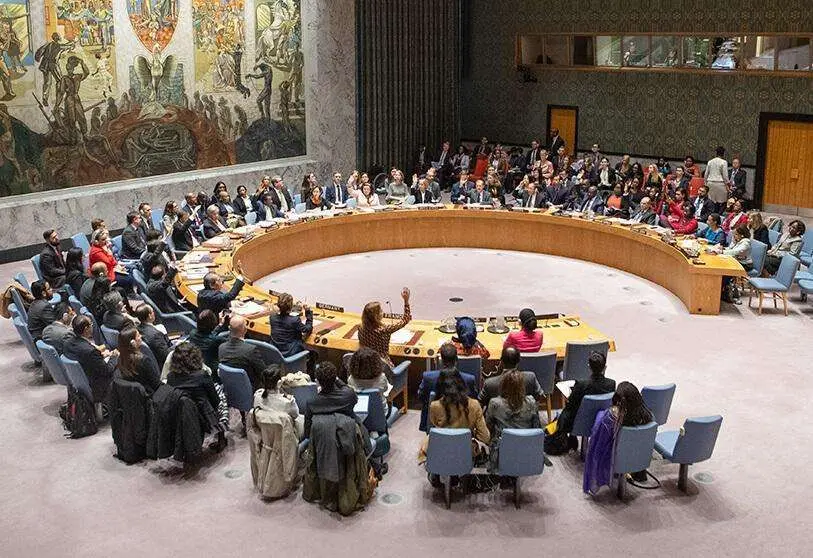UN Security Council calls for "withdrawal of foreign troops and mercenaries in Libya"

The UN Security Council on Friday called in a unanimously adopted statement for "the withdrawal without further delay of all foreign forces and mercenaries from Libya", welcoming Wednesday's parliamentary validation of the new government led by Prime Minister Abdul Hamid Dbeibah.
"The Security Council calls on all parties to fully implement the (23 October) ceasefire agreement and urges member states to respect and support the full implementation of the agreement," the statement said.
According to the UN, some 20,000 troops and mercenaries were still in Libya at the end of 2020 and there has been no movement to date to withdraw.
"The Security Council calls for full compliance with the UN arms embargo by all member states, in accordance with relevant Security Council resolutions," the text also says.

The embargo, imposed since 2011, has been regularly violated for years, according to the UN experts in charge of monitoring it. Their next annual report is expected in the coming days. In the past, these experts have denounced the presence in Libya of Russian mercenaries, Turkish troops and armed groups made up of Syrians, Chadians or Sudanese.
Last June, a group of UN experts called on the parties to the Libyan conflict to "stop recruiting, financing and deploying" mercenaries. They also called for all crimes in which these militiamen are involved to be investigated.
For his part, the mercenary Erik Prince, founder of Blackwater and close to former US President Donald Trump, violated the UN arms embargo on Libya in 2019, according to a confidential report by this organisation published by The New York Times and The Washington Post.
The report, which is before the UN Security Council, reveals that Prince deployed a small force of heavily armed Western mercenaries in eastern Libya in the service of rebel commander Khalifa Haftar, head of the Libyan National Army (LNA).

The operation cost approximately $80 million according to the report and was aimed at deposing the UN-recognised government based in Tripoli, led at the time by Fayez al Sarraj.
UN investigators believe that at least 1,200 Russians were hired by Russian private military companies, such as Wagner, to help Khalifa Haftar win his war against the GNA. Undoubtedly, Russia has played a central role in the Libyan conflict. Haftar relies on foreign armed groups, insurgents, militia groups and mercenaries such as Sudanese fighters, mercenaries of the Al Asad regime in Syria, the Russian Wagner group, the Janjaweed militia in Darfur, extremist Salafists of Madjalism (from Saudi Arabia) and the Libyan Al Kaniyar militia for his ranks.
"The Security Council recognises the need to plan for the disarmament, demobilisation and reintegration of armed groups, security sector reform and the establishment of an inclusive, civilian-led security architecture for all of Libya," the statement said.








